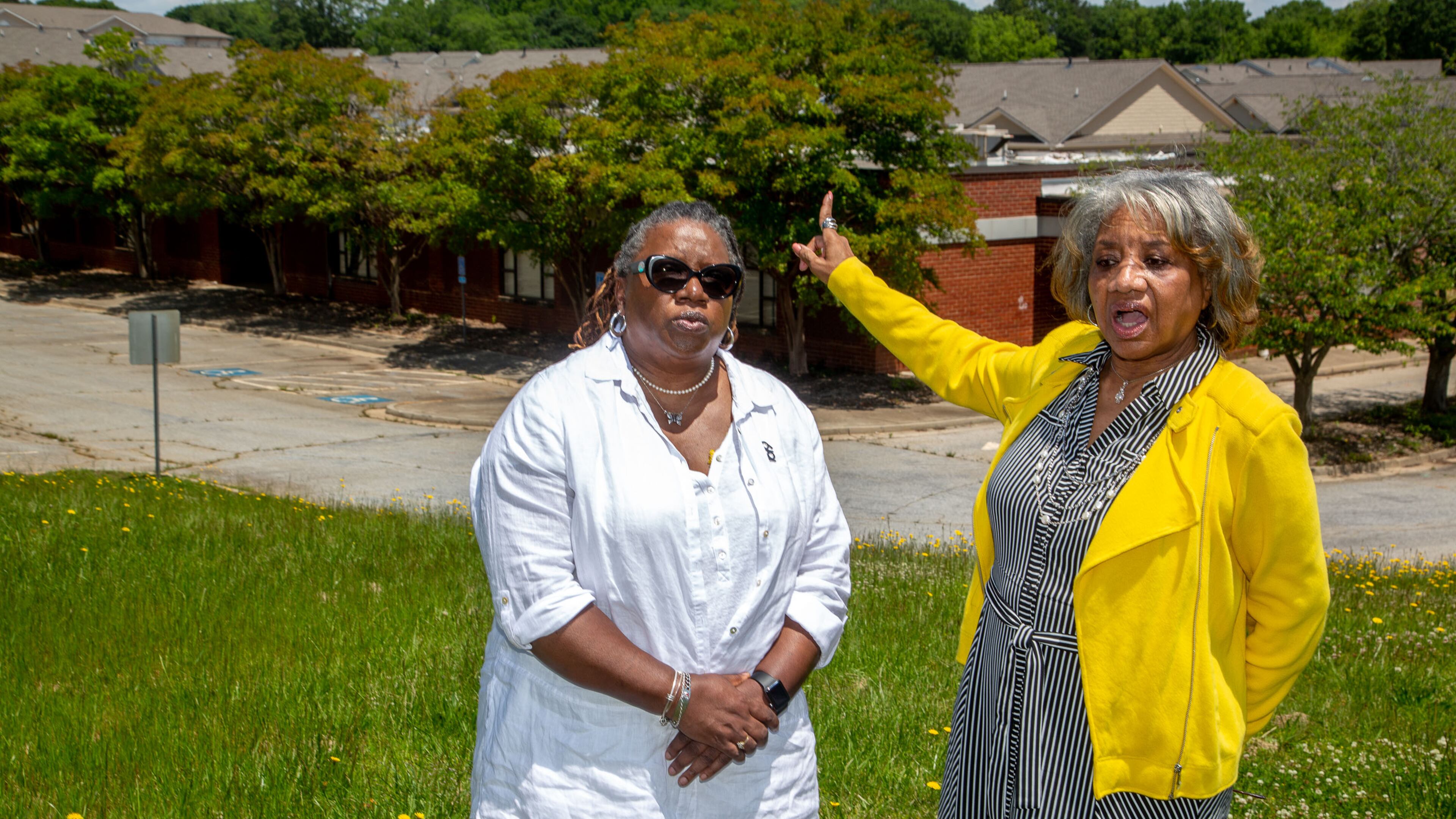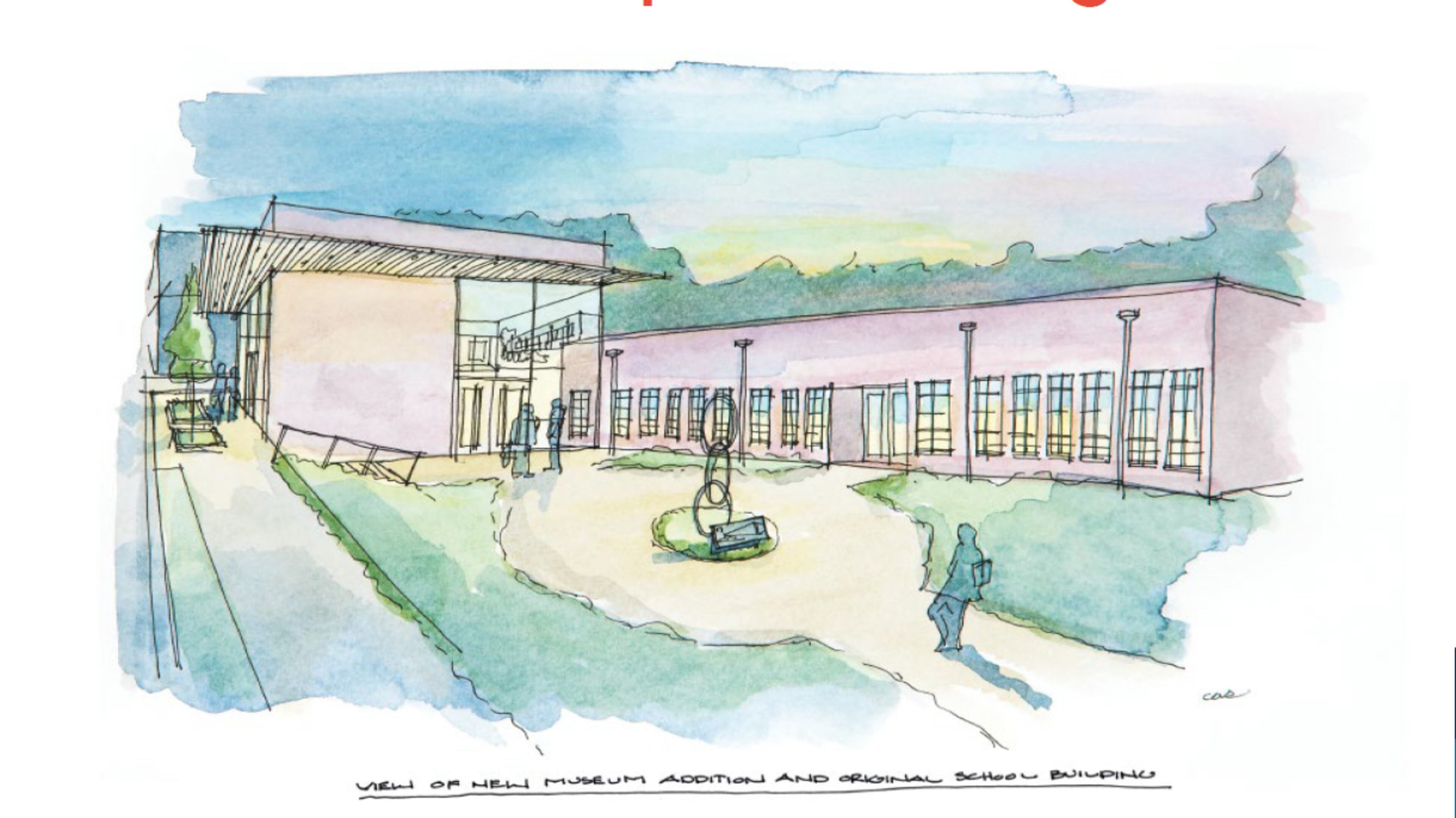Gwinnett plans memorial to Black history in former school

In a few years, the unsaid stories and history of Black residents in Gwinnett County will be memorialized in an old school building in Lawrenceville.
The Hooper-Renwick building, which housed the county’s only high school for Black children up until desegregation in 1968, will be converted into a 25,000-square-foot themed library and museum. Lawrenceville will donate the 3.8-acre property to the county at no cost, expecting to close on the transaction this month.
Located on Neal Boulevard near sprawling new homes, the building was almost demolished by Lawrenceville years ago to make way for the city’s SouthLawn residential development. Concerned residents and former students of Hooper-Renwick prevented its destruction, calling for preservation of the historic building.
The project, funded by county SPLOST dollars and about $1.7 million from Lawrenceville, will incorporate the original 12-classroom Hooper-Renwick building into the footprint. The county will build an addition of about 13,600-square-feet with a second-floor entrance facing Neal Boulevard.
“This will be the first — hopefully won’t be the last — monument, edifice, memorial (and) even nod to African Americans in Gwinnett County,” said Joyce Moore, who graduated from the school in 1966 and serves as vice chair of the Hooper-Renwick Legacy Preservation Committee.
Black students in grades 1-12, bused from all corners of the county, learned in the 12-classroom Hooper-Renwick School building, constructed in 1951. The school was named after Mack Renwick, who donated three acres on Neal Boulevard for the school, and Marshall Hooper, the first principal of the school.

Rocky Knob School, also in Lawrenceville, served Black students from 1885 until it was destroyed by a tornado in 1924. There was also a school in Duluth at the time of Hooper-Renwick, but it only taught students up to 8th grade.
The project will not only pay homage to the former school but also the history of segregation and desegregation in Gwinnett County.
“When I began this project searching the history of Gwinnett County, the only mention of an African American was one that was hung in Lawrenceville and no name given to him,” said Theresa Bailey, who attended the school until the fifth grade and now serves as chair of the committee. “These are the kinds of things that will no doubt filter through people’s minds and understandings as they pass through the annals of this great edifice that we’re proposing and in the process of building.”
Bailey, her fellow committee members and historians hired by the county will interview more than 100 people about their lives for first-person historical accounts. Tentatively, the renovation of Hooper-Renwick is expected to be completed by 2023 or 2024, said Lawrenceville City Manager Chuck Warbington.

The county has experienced waves of diversity in recent decades. Now, Black residents make up nearly 30% of Gwinnett’s total population. Nevertheless, much remains untold about the experience of Black residents in the county, Bailey said.
Black-owned homes once surrounded Hooper-Renwick, Bailey said. They were bought and torn down to make way for public housing apartments. Now, there’s little evidence that the apartments ever existed.
Lawrenceville recently greenlighted a $500,000 purchase of the land where Mount Calvary United Methodist Church sits at 145 Neal Blvd., right across from the school and SouthLawn. The city plans to make improvements at the intersection to help traffic flow, Warbington said.
The church will be demolished, but it’s unclear what will go in its place.
The church won’t be forgotten, though, as artifacts will be preserved and kept at the Hooper-Renwick library and museum. Warbington said the city may keep the church’s stained-glass windows and a church pew.

Local churches, like Mount Calvary UMC and Pleasant Hill Baptist Church, played an important role when Hooper-Renwick still taught Black children, Bailey said. Students graduated in Pleasant Hill Baptist, while concerts and plays were performed at Mount Calvary UMC.
“I was raised Catholic, but these churches were not unfamiliar,” Bailey said. “I’d ride my bike to revival thinking nothing of it. It was a place of belonging, and it was safe.”
Established in 1871 at a different location, Mount Calvary United Methodist Church officially shut its doors in December 2020. Declining membership made it hard to keep its doors open, said Rodrigo Cruz, a district superintendent for the North Georgia Conference of the United Methodist Church.
“I think it’s vital that they are preserved and not forgotten because the church has such a presence in the community,” said Elvira Rogers, a former pastor of the church.
The county will restore 20 original windows on the front facade of the school building to their original appearance, and the project will include about 1,500 square feet of community space that can hold about 100 people.

Some of the school’s newer additions, including the gym, will be demolished in the process. But artifacts from the buildings, including wood flooring and scoreboard from the gym, a cafeteria window and lettering from the existing building, will be displayed in the library.
“We move forward, trusting that every step will bring us closer to something that will enlighten not just African Americans but people of all colors, shapes and sizes all over the world,” Bailey said. “This impact will have the world looking at Lawrenceville in Gwinnett County.”


